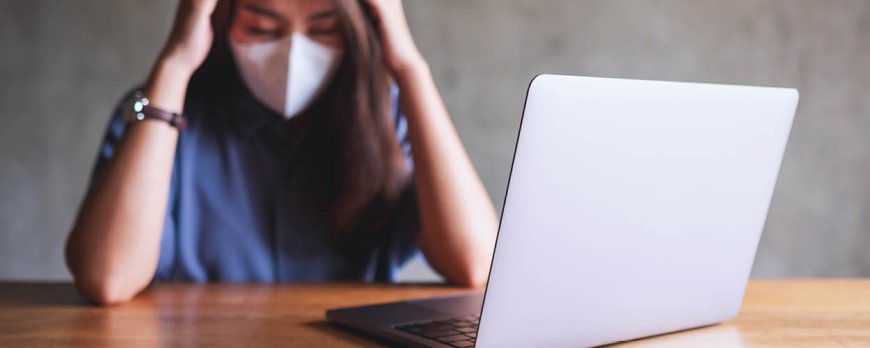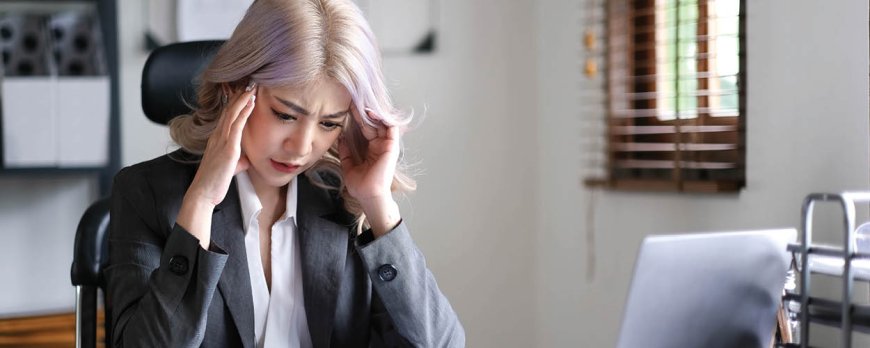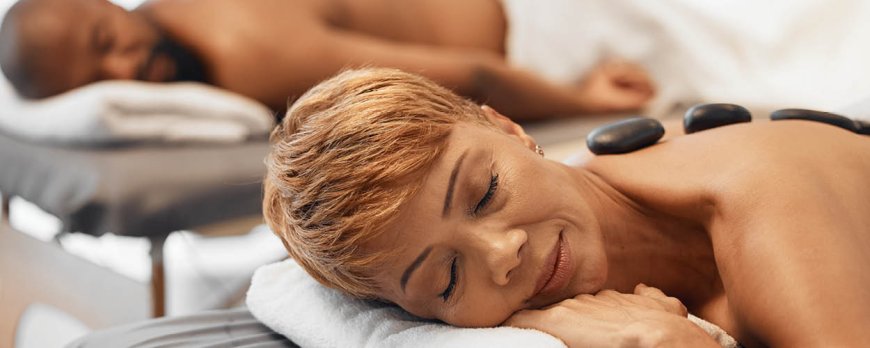How to Fight Anxiety?
Uncover effective strategies on how to fight anxiety. Gain control, minimize stress and enhance your mental well-being with our comprehensive guide.

How to Fight Anxiety?
Anxiety is a common mental health issue that can have a significant impact on daily life, but there are effective techniques and strategies that can help individuals manage and overcome their anxiety. By implementing these techniques, individuals can find relief from the symptoms of anxiety and regain control over their lives.
Key Takeaways:
- Anxiety is a common mental health issue that can have a significant impact on daily life.
- There are various strategies and techniques that can be employed to manage and overcome anxiety.
- Techniques such as questioning thought patterns, deep breathing exercises, and grounding techniques can provide immediate relief from anxiety symptoms.
- Long-term solutions include identifying and managing triggers, trying therapy options like cognitive behavioral therapy (CBT), and considering medication if necessary.
- Incorporating mindfulness practices, engaging in regular physical activity, and maintaining a social support network can also help in managing anxiety.
Recognizing Anxiety Symptoms
Anxiety can manifest in a variety of ways, from physical symptoms like increased heart rate and sweating to intense episodes of panic and restlessness known as anxiety attacks or panic attacks. It is important to be able to recognize these symptoms in order to effectively manage anxiety.
Physical symptoms of anxiety can include a racing heart, rapid breathing, trembling or shaking, and feeling lightheaded or dizzy. These physical manifestations are often accompanied by feelings of tension, worry, and a sense of impending doom.
Anxiety attacks and panic attacks are more severe episodes that can be triggered by specific situations or can occur unexpectedly. During an anxiety attack, individuals may experience a surge of overwhelming fear, along with symptoms such as chest pain, shortness of breath, sweating, and a feeling of being out of control. It is important to remember that these sensations are temporary and will pass.
Recognizing Anxiety Symptoms:
- Increased heart rate
- Rapid breathing
- Sweating
- Trembling or shaking
- Feelings of tension and worry
- Impending doom
- Chest pain
- Shortness of breath
- A sense of being out of control
If you experience any of these symptoms on a regular basis, it is important to seek help from a mental health professional. They can provide a proper diagnosis and help you develop a personalized treatment plan to manage your anxiety. Remember, you don't have to face anxiety alone - there are effective strategies and support available to help you regain control of your life.

Challenging Thought Patterns and Fears
One effective approach to fighting anxiety is to actively challenge negative thought patterns and fears, utilizing self-help techniques and potentially seeking professional guidance through cognitive behavioral therapy (CBT). Cognitive behavioral therapy is a widely recognized and evidence-based form of therapy that focuses on identifying and changing negative thought patterns and behaviors.
By challenging negative thoughts and fears, individuals can gain a better understanding of their anxiety triggers and develop strategies to manage them more effectively. Self-help techniques such as journaling, practicing positive affirmations, and engaging in relaxation exercises can be helpful in this process. These techniques allow individuals to reframe their thoughts, gain a sense of control over their anxiety, and build resilience.
Journaling:
- Write down your anxious thoughts and fears.
- Identify any patterns or recurring themes.
- Challenge negative thoughts by questioning their validity.
- Replace negative thoughts with more positive and realistic ones.
Positive Affirmations:
- Create a list of positive statements about yourself and your abilities.
- Repeat these affirmations daily, especially during times of heightened anxiety.
- Focus on your strengths and remind yourself of your resilience.
- Affirmations can help shift your mindset and reduce anxiety.
Relaxation Exercises:
- Practice deep breathing exercises to help calm your nervous system.
- Try progressive muscle relaxation to release tension in your body.
- Engage in mindfulness meditation to cultivate present-moment awareness.
- Explore relaxation techniques such as guided imagery or aromatherapy.
While self-help techniques can be beneficial, it is important to recognize that everyone's experience with anxiety is unique. It may be helpful to seek professional guidance through cognitive behavioral therapy (CBT) to supplement self-help efforts. A trained therapist can provide personalized strategies and support to help individuals challenge their thought patterns and fears more effectively.
Remember, fighting anxiety is a journey, and it takes time and effort. By actively challenging negative thought patterns and fears, utilizing self-help techniques, and potentially seeking professional guidance through cognitive behavioral therapy (CBT), individuals can take positive steps towards managing their anxiety and finding relief.
Deep Breathing and Grounding Techniques
Deep breathing exercises and grounding techniques can be powerful tools in managing anxiety, helping to calm the mind and bring focus to the present moment. When anxiety strikes, practicing deep breathing can help activate the body's relaxation response, reducing feelings of panic and stress. One effective technique is diaphragmatic breathing, which involves taking slow, deep breaths, filling the belly with air, and exhaling slowly. This rhythmic breathing pattern can help regulate the body's stress response and promote a sense of calm.
Grounding techniques, on the other hand, involve redirecting attention away from anxiety and towards the immediate surroundings. One simple grounding exercise is called the "5-4-3-2-1" method. Begin by identifying five things you can see, four things you can touch, three things you can hear, two things you can smell, and one thing you can taste. This exercise helps shift the focus away from anxious thoughts and towards the present moment, grounding the mind in reality.
Practical tips:
- Find a quiet, comfortable space where you can practice deep breathing without distractions.
- Sit or lie down in a relaxed position, placing one hand on your abdomen and the other on your chest.
- Inhale slowly through your nose, allowing your abdomen to rise as you fill your lungs with air.
- Exhale slowly through your mouth, letting go of any tension or stress with each breath.
- Repeat this deep breathing exercise for several minutes, focusing on the sensation of your breath entering and leaving your body.
When practicing grounding techniques, it can be helpful to engage as many senses as possible. For example, when identifying things you can see, try to notice the colors, shapes, and textures of the objects around you. By actively engaging the senses, you can redirect your attention away from anxious thoughts and bring yourself back to the present moment.
Remember that deep breathing exercises and grounding techniques are just two tools in the toolbox for managing anxiety. What works for one person may not work for another, so it's important to explore different techniques and find what resonates with you. If anxiety becomes a regular part of life or significantly impacts daily functioning, it's essential to seek help from a mental health professional who can provide guidance and support.

Utilizing Aromatherapy
Aromatherapy, with its use of essential oils, has gained recognition for its potential to alleviate anxiety symptoms and promote a sense of calm and relaxation. The scent of certain essential oils can have a powerful impact on our emotions and overall well-being. Here are some popular essential oils that can be helpful in managing anxiety:
- Lavender: Known for its soothing properties, lavender essential oil can help reduce anxiety and promote better sleep.
- Chamomile: With its gentle and calming aroma, chamomile essential oil can help relieve stress and anxiety.
- Bergamot: This citrusy oil is known for its uplifting and mood-enhancing effects, making it a great choice for reducing anxiety.
- Ylang Ylang: With its sweet and floral scent, ylang ylang essential oil can help relax the mind and ease feelings of tension.
To incorporate aromatherapy into your daily routine, you can use essential oils in various ways. One popular method is diffusing the oils using an essential oil diffuser, which releases the aroma into the air. You can also apply diluted essential oils topically by blending them with a carrier oil, such as jojoba or coconut oil, and massaging the mixture onto your skin.
Caution:
Although aromatherapy can be beneficial for managing anxiety, it is important to use essential oils safely. Some oils may cause irritation or allergic reactions, so it's essential to do a patch test before using them on your skin. Pregnant women and individuals with certain health conditions should consult with a healthcare professional before using aromatherapy.
Incorporating aromatherapy as part of your anxiety management routine can provide a natural and enjoyable way to find relief. Experiment with different essential oils and methods of application to discover what works best for you. Remember, it's always helpful to seek professional guidance and support if anxiety persists or worsens over time.
Incorporating Exercise
Regular exercise is not only beneficial for physical health but also plays a significant role in reducing anxiety symptoms and promoting overall well-being. Engaging in physical activity releases endorphins, which are natural mood-boosting chemicals that can help alleviate feelings of stress and anxiety.
When it comes to choosing an exercise routine, it's important to find activities that you enjoy and that fit into your lifestyle. This could be anything from going for a brisk walk or jog outdoors to participating in a group fitness class or playing a sport you love. The key is to find something that keeps you motivated and excited to keep moving.
If you prefer a more structured approach, consider incorporating aerobic exercises such as running, cycling, or swimming into your routine. These activities increase heart rate and oxygen intake, promoting the release of endorphins and helping to reduce anxiety symptoms. Additionally, activities like yoga and Pilates can help improve flexibility and focus while providing a sense of calm and relaxation.
Remember, consistency is key. Aim to incorporate exercise into your daily routine, even if it's just for a short period of time. Gradually increase the duration and intensity of your workouts as your fitness level improves. And always listen to your body - if you ever feel overwhelmed or experience any pain or discomfort, make sure to consult with a healthcare professional.

Identifying and Managing Triggers
Understanding and managing anxiety triggers is a crucial step towards effectively combating anxiety, allowing individuals to regain control over their emotional well-being. By recognizing the situations or thoughts that provoke feelings of anxiety, it becomes possible to develop strategies to cope with them.
1. Self-reflection and Awareness
Start by reflecting on your own experiences and identifying patterns or common themes that consistently trigger anxiety. Keep a journal to track your thoughts, feelings, and the circumstances surrounding your anxiety episodes. This self-awareness will provide valuable insights into the triggers specific to you and enable you to develop targeted coping mechanisms.
2. Stress Management Techniques
- Practice stress management techniques such as deep breathing exercises, progressive muscle relaxation, and mindfulness meditation. These techniques can help calm the mind and reduce anxiety symptoms in the moment.
- Engage in activities that promote relaxation and stress reduction, such as yoga, tai chi, or taking a warm bath.
3. Healthy Boundaries and Self-Care
- Set boundaries in your personal and professional life to ensure that you have time and space to take care of yourself. Learning to say no when necessary and prioritizing self-care activities can help prevent overwhelming stress and anxiety.
- Establish a routine that includes regular exercise, sufficient sleep, and a balanced diet. Taking care of your physical well-being is essential in managing anxiety.
Identifying and managing anxiety triggers is an ongoing process that may require professional guidance. If anxiety becomes a regular part of your life and significantly impacts your daily functioning, it is important to seek help from a mental health professional. They can provide specialized techniques and support tailored to your individual needs, helping you regain control and live a more fulfilling life.
Exploring Therapy and Medication Options
In some cases, seeking therapy, such as cognitive behavioral therapy (CBT), and considering medication may be necessary to effectively address and manage anxiety. Therapy can provide individuals with the tools and support needed to identify and challenge negative thought patterns, develop coping strategies, and manage anxiety symptoms. Cognitive behavioral therapy, in particular, has been shown to be effective in treating anxiety by helping individuals recognize and change unhealthy thought patterns and behaviors.
Cognitive Behavioral Therapy (CBT)
Cognitive behavioral therapy (CBT) is a type of psychotherapy that focuses on the relationship between thoughts, feelings, and behaviors. Through CBT, individuals can learn to identify and challenge negative thought patterns that contribute to anxiety, replacing them with more realistic and positive thoughts. This form of therapy also helps individuals develop effective coping strategies and behavioral techniques to manage anxiety symptoms.
Medication
In some cases, medication may be prescribed by a healthcare professional to help alleviate anxiety symptoms. Medications commonly used to treat anxiety include selective serotonin reuptake inhibitors (SSRIs), serotonin-norepinephrine reuptake inhibitors (SNRIs), benzodiazepines, and beta-blockers. It is important to consult with a healthcare provider to determine the most suitable medication option based on individual needs and circumstances.
It is worth noting that therapy and medication are not always necessary for everyone experiencing anxiety. However, for individuals whose anxiety significantly impacts their daily functioning and quality of life, seeking professional help can be beneficial in developing an effective treatment plan.

Embracing Mindfulness Practices
Embracing mindfulness practices, such as daily meditation, can offer individuals a powerful tool for reducing anxiety and cultivating a sense of inner peace. By intentionally focusing on the present moment and becoming aware of our thoughts and emotions without judgment, we can begin to break free from the grip of anxiety.
One effective technique is to set aside a few minutes each day to practice mindfulness meditation. Find a quiet and comfortable space, sit in a relaxed position, and simply bring your attention to your breath. Notice the sensation of each inhale and exhale, allowing any thoughts or distractions to pass by without getting caught up in them. Over time, this practice can help train your mind to become more calm and focused, enabling you to better manage anxiety.
Another way to incorporate mindfulness into your daily routine is through mindful activities. This can include anything from eating a meal with full awareness, noticing the flavors and textures of each bite, to engaging in a mindful walk, paying attention to the sensations in your body and the environment around you. By bringing mindful awareness to these activities, you can bring yourself into the present moment and create a sense of calm and grounding.
Benefits of Mindfulness Practices:
- Reduces stress and anxiety levels
- Enhances self-awareness and emotional regulation
- Promotes mental clarity and focus
- Improves overall well-being and resilience
By incorporating mindfulness practices into your daily routine, you can develop a powerful tool to combat anxiety. Whether it's through dedicated meditation or bringing mindful awareness to everyday activities, embracing mindfulness can help you find peace amidst the chaos and cultivate a greater sense of well-being.
The Power of Social Support and Activity
Building a strong support network, engaging in social activities, and staying physically active can greatly contribute to anxiety management and overall well-being. These practices can provide a sense of belonging and connection, help reduce feelings of isolation, and offer opportunities for relaxation and stress relief.
Here are some ways to incorporate social support and activity into your anxiety management routine:
1. Building a support network:
- Reach out to friends, family, or support groups who understand your struggles and can provide a listening ear or offer guidance.
- Join online communities or forums where you can connect with others who experience similar anxiety challenges.
- Consider seeking professional help from a therapist or counselor who can provide tailored support and guidance.
2. Engaging in social activities:
- Participate in activities that bring you joy, such as hobbies, sports, or group classes.
- Attend local community events or join clubs and organizations that align with your interests.
- Volunteer for a cause that you are passionate about, as helping others can boost your mood and self-esteem.
3. Staying physically active:
- Incorporate regular exercise into your routine, such as walking, jogging, yoga, or dancing.
- Engage in outdoor activities, like hiking or biking, to enjoy the benefits of fresh air and nature.
- Consider joining a fitness class or team sport to combine physical activity with social interaction.
Remember, finding the right balance between social support, social activities, and physical activity is key. Experiment with different strategies and listen to your own needs and preferences. By incorporating these practices into your daily life, you can enhance your well-being and effectively manage anxiety.
Considering Diet and Supplements
While a healthy diet and certain supplements may have a positive impact on anxiety symptoms, it is essential to approach dietary changes and supplement use as part of a comprehensive anxiety management plan.
When it comes to diet, incorporating nutrient-rich foods can contribute to overall well-being and potentially help alleviate anxiety symptoms. Foods that are high in omega-3 fatty acids, such as fatty fish, nuts, and seeds, have been associated with reduced anxiety. Additionally, consuming complex carbohydrates found in whole grains, fruits, and vegetables can promote stable blood sugar levels, which can have a calming effect on the mind and body.
Supplements can also play a role in anxiety management, but it is important to consult with a healthcare professional before introducing any new supplements into your routine. Some commonly suggested supplements for anxiety include omega-3 fatty acids, magnesium, B vitamins, and herbal remedies such as chamomile or valerian root. However, it is important to remember that supplements are not a substitute for professional guidance and should be used in conjunction with other anxiety management techniques.
Summary:
- Incorporate nutrient-rich foods, such as those high in omega-3 fatty acids and complex carbohydrates, into your diet to potentially reduce anxiety symptoms.
- Consult with a healthcare professional before adding any new supplements to your routine, as they can provide guidance on dosage and potential interactions.
- Remember that supplements should be used as part of a comprehensive anxiety management plan and should not replace other evidence-based techniques.
By considering diet and supplements as part of a holistic approach to anxiety management, individuals can work towards finding a personalized strategy that addresses both their physical and mental well-being. It is always advisable to seek guidance from a healthcare professional, who can provide tailored advice based on individual needs and circumstances.
Conclusion
Fighting anxiety requires a multifaceted approach, incorporating various strategies and techniques, but with determination and support, individuals can gain control over their anxiety and enhance their overall well-being.
In the immediate term, it is important to question thought patterns and challenge fears. By practicing deep breathing exercises and incorporating aromatherapy, individuals can find relief and relaxation. Engaging in regular exercise and grounding techniques, such as journaling, can also play a crucial role in managing anxiety.
However, it is equally important to address anxiety in the long term. This involves identifying and managing triggers, seeking therapy options like cognitive behavioral therapy (CBT), and considering medication when necessary. Incorporating daily meditation, maintaining a journal, socializing, staying active, and paying attention to diet and supplements can also contribute to anxiety management.
It is essential to remember that anxiety can manifest in physical symptoms such as increased heart rate, sweating, and rapid breathing. Anxiety attacks and panic attacks, characterized by feelings of panic, restlessness, and difficulty focusing, can also occur. If anxiety becomes a regular part of life, seeking help from a mental health professional is crucial.
FAQ
What are some strategies to fight anxiety?
To fight anxiety, individuals can question their thought patterns, challenge their fears, practice deep breathing exercises, use aromatherapy, engage in exercise and grounding techniques, and journal.
What should I do if I experience physical symptoms of anxiety?
If you experience physical symptoms such as increased heart rate, sweating, and rapid breathing, it is important to seek professional help and consider implementing anxiety management techniques.
What are anxiety attacks and panic attacks?
Anxiety attacks and panic attacks are characterized by feelings of panic, restlessness, and difficulty focusing. If these occur regularly, it is important to seek help from a mental health professional.
How can I challenge negative thought patterns and fears associated with anxiety?
Challenging negative thought patterns and fears can be done through self-help methods and cognitive behavioral therapy (CBT). Seeking therapy from a professional can be beneficial in this process.
What are some deep breathing and grounding techniques?
Deep breathing exercises and grounding techniques can help manage anxiety. Examples include diaphragmatic breathing and grounding exercises like 5-4-3-2-1 technique.
Can aromatherapy help with anxiety?
Aromatherapy using essential oils can be a natural remedy for anxiety. Different oils like lavender and chamomile can promote relaxation and reduce stress.
How does exercise help in managing anxiety?
Regular exercise has been shown to have positive effects on anxiety management. Engaging in physical activity releases endorphins and reduces stress levels.
How can I identify and manage anxiety triggers?
Identifying and managing anxiety triggers involves self-reflection, keeping a journal, and using techniques like exposure therapy. It is important to gain control over anxiety-inducing situations.
What therapy and medication options are available for anxiety?
Therapy options such as cognitive behavioral therapy (CBT) can be effective in treating anxiety. In some cases, medication may also be prescribed. Seeking professional help is essential.
How can mindfulness practices help with anxiety?
Daily meditation and mindfulness practices can help reduce anxiety by promoting relaxation and focusing on the present moment. It is important to incorporate these practices into daily life.
How does social support and staying active help in managing anxiety?
Social support, maintaining an active lifestyle, and engaging in activities like journaling and socializing can help manage anxiety by promoting a sense of connection and positive mental health.
Can diet and supplements impact anxiety?
Diet and supplements can play a role in anxiety management. It is important to consume a balanced diet and consider nutrients like omega-3 fatty acids and magnesium. However, professional guidance is recommended.
What should I do if anxiety becomes a regular part of my life?
If anxiety becomes a regular part of life, it is important to seek help from a mental health professional. They can provide support, guidance, and appropriate treatment options.

































































































































